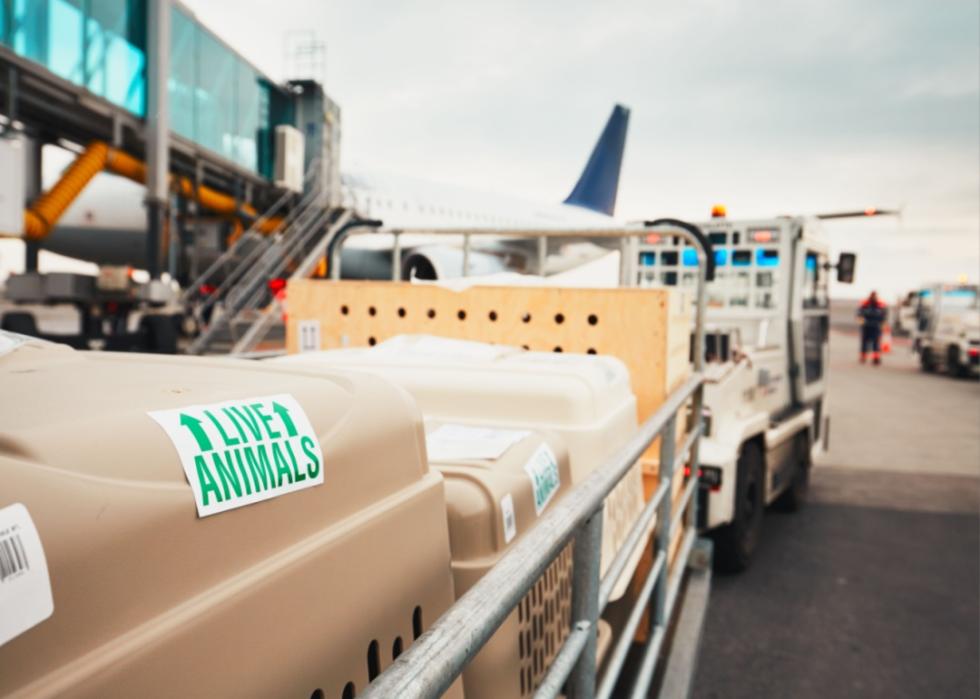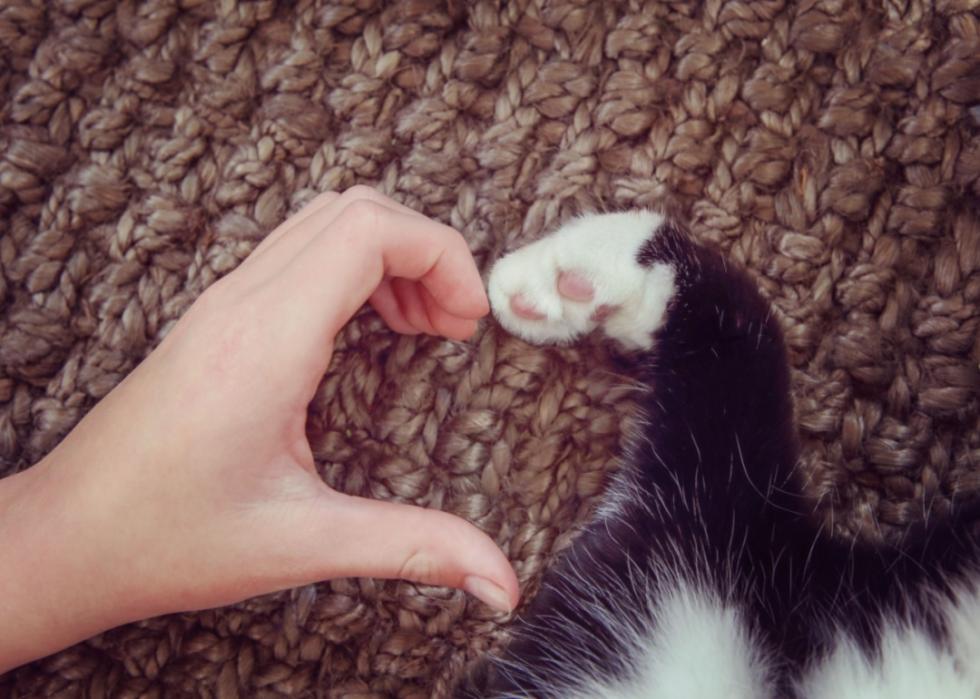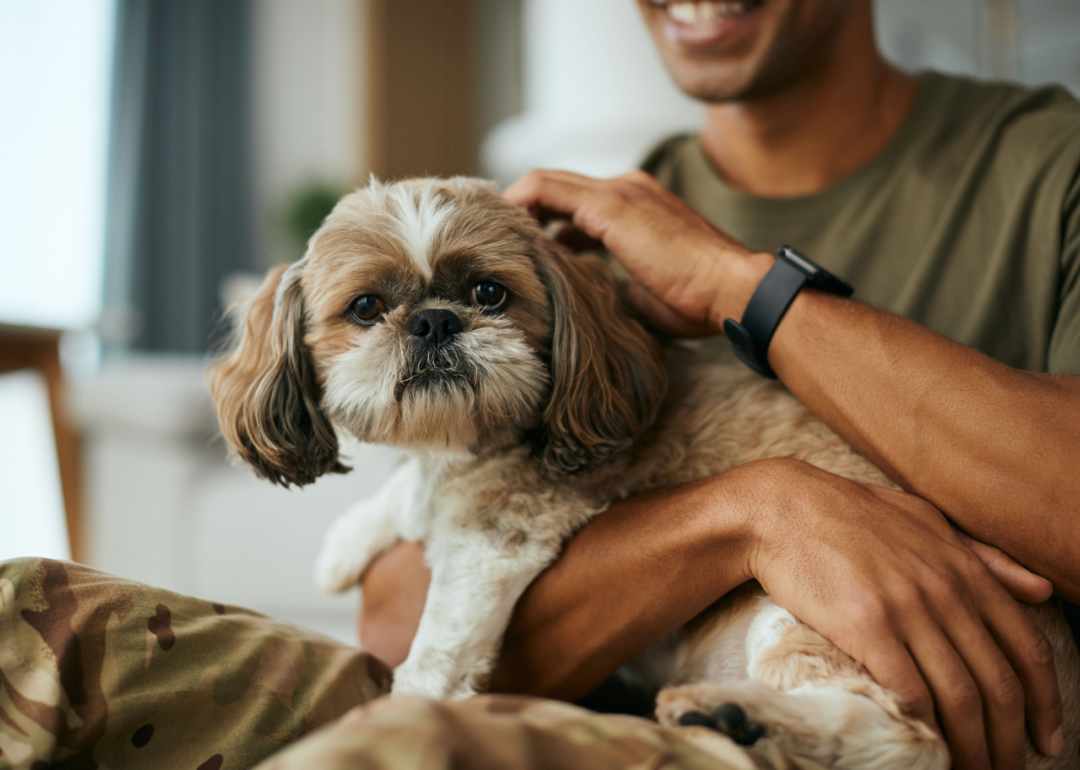How one US organization reunites military personnel with the animals they rescued overseas

Azuara heard about the program from service members who had previously been deployed at the base. After she bonded with Fent, she submitted her application to bring the kitty home to the U.S.
"I was a little skeptical at the beginning, to be honest, because I was like, 'Oh, I don't know why would they do it for free,'" she said, "but I don't lose anything by just checking it out."
The "War Torn Pups & Cats" program costs nothing for service members—donors primarily fund it. In 2023, Paws of War raised over $4 million from contributions and grants.
After a soldier like Azuara applies, Paws of War volunteers and staff members all around the world team up to work on the logistics, exploring how possible it is to bring the pet to the United States. Dogs and cats need to see a qualified veterinarian for documentation and rabies vaccines before traveling internationally, but sometimes that vet is located hours away. The care can also vary in cost, depending on local currency and pricing.
"Recently we had a dog in Africa and we've done a few from bases there," Baumann said. "It literally takes a donkey cart, a boat, couple cars and then, usually a motorcycle, something that can go through a little bit of brush to get these the dogs or cats to the city where we can get them to a vet and start processing them."
The most expensive part of the process is transporting animals to the U.S. It often involves flying them in a plane as cargo, which can cost around $4,000 or more. The pet also must enter the country at a government-authorized airport.
For instance, cats from other countries can enter the U.S. through several airports, but the CDC only allows dogs from high-risk rabies countries to enter through six, including John F. Kennedy International Airport in New York City and Los Angeles International Airport.

Paws of War accepts direct donations on its website to help support its programs, which include providing PTSD service dogs and a mobile veterinary clinic in Long Island, New York.
For the "War Torn" program, the expense is worth it for the organization, its soldiers, and the animals. Dogs and cats are believed to be capable of more complex emotions than most people realize and their reunions with the officers they bonded with may mean just as much to them as it does to the human.
For Azuara, the bond was as strong as ever. Three weeks after she put in her application, the program contacted her in November 2024 with good news: Fent was ready to travel to the U.S. and live with her.
The cat flew from Kosovo and entered the U.S. through JFK airport, eventually making it to Azuara's home in Austin, Texas. Their reunion at the airport meant a lot to Azuara, who worried the kitty might forget her or not get along with her two dogs. But Fent—who Azuara renamed Frenzy—adjusted to her new home right away. Frenzy doesn't get to eat fries anymore, but enjoys her proper cat food.
Now, Azuara is training to join the Travis County EMS. Having Frenzy, a major part of her overseas experience, in Texas has helped her readjust to the U.S.
"She's definitely one of my huge grounding tools, when I was over there," Azuara said. "When the situations were really stressful, she was something that would brighten up my day. And when I came back it's really hard to transition and acclimate back into civilian life, but having her, it was kind of like having a little piece of where I was and a little reminder that, hey, it's going to be okay."
Story editing by Alizah Salario. Additional editing by Elisa Huang. Copy editing by Kristen Wegrzyn. Photo selection by Lacy Kerrick.
